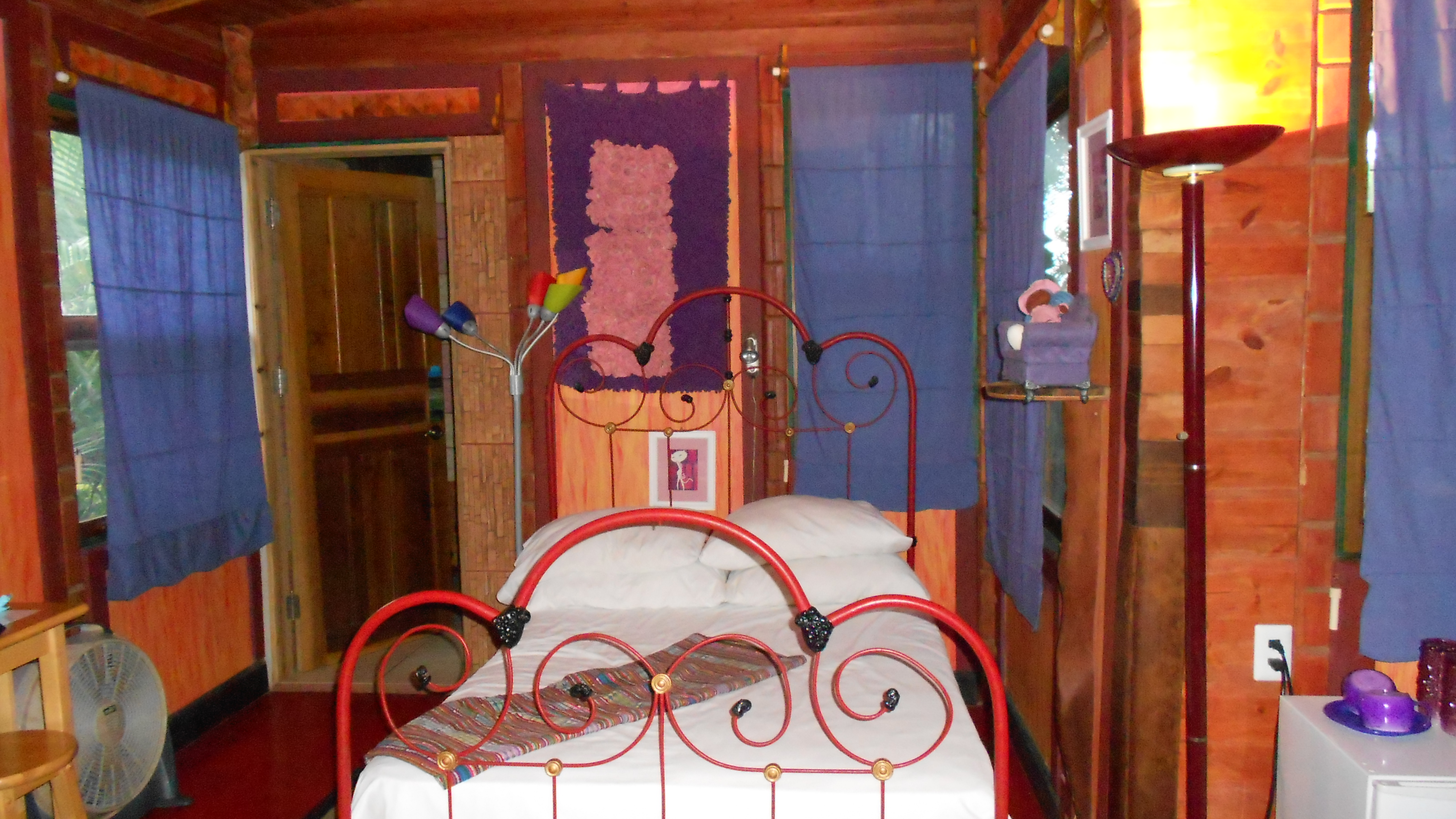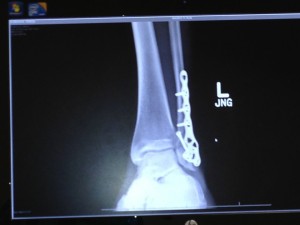On Labor Day 2013, I walked into a drop-in capoeira class, which is a Brazilian martial arts, and left limping. I’d fallen during a sparing exercise. Despite the pronounced popping sound, I thought I’d severely sprained my left ankle. After all, I could still walk.
The next morning, I slipped on an ankle brace, hobbled to work and realized I would not make it through the day. I called in sick, quickly got sub plans together, made a doctor’s appointment and had everything ready by the time school started.
Driving to my doctor’s appointment, I optimistically wished to have a boot. That way, I could still hobble around, but my foot would be more protected. The nurse practitioner ordered an X-ray. When he saw the X-ray, he prefaced his conclusion with “go big or go home.” He then explained that my left fibula had a spiral fracture. Since the fibula bears only 15% of the body’s weight, a person can walk on it even if it’s broken. Still in good spirits, I took a picture of the X-ray to show to loved ones and friends.
A few hours later, I received my boot. As the boot tech fitted me, I showed him the picture of the X-ray. He speculated that I might need surgery, but I was sure I didn’t. After all, I was in good health other than the broken ankle. Besides, I had full social calendar and travel plans, which didn’t include a trip to the OR. A few days later, I had a pair of crutches to go along with my boot and an appointment for surgery.
Within three days, I went from shock, denial and then anger. I displaced my anger as I furiously planned for two weeks’ worth of lesson plans for my science classes. I could have scheduled my surgery for an earlier date, but I couldn’t fathom undergoing surgery and taking a two-week sick leave without solid lessons for the long-term sub.
Another thing that curbed my anger was my lack of spare energy to be angry. Since I had to keep weight off my ankle, I used crutches and a rolling chair to get around. Using my upper body strength to move around felt like running a daily marathon. (I still don’t know how anyone can gain weight while being on crutches!)
Before surgery, the lesson plans had been written, one of my sisters had flown in to take care of me for two weeks, and gradually, I had undone all the immediate plans I had set for my life. I stopped capoeira, tango and bikram yoga classes. I cancelled my trip to Myrtle Beach for my 25th high school reunion, complete with flight and hotel reservations. Instead, I made appointments with friends who helped me take out the trash and recycling, gas up my car and shop for groceries.
The novelty of riding around a motorized shopping cart in the grocery store was partially tainted with my first taste of invisibility. No one saw me at that height. I’d hobbled in with a friend and my crutches, placing the crutches in the basket once I got the cart. Although I joked about jousting, I was amazed to discover that people initially reacted to the crutches as if inanimate objects had suddenly come to life. Some people dashed in front of me in such a hurry since allowing me a few seconds to pass by them was too much of an inconvenience.
That first grocery shopping trip gave me an initial taste of the loss of independence and invisibility an injury can cause. I never realized that I existed in a fast-paced crowd and an injury such as this would cause me to be left behind even when I was among them in social settings. I repeatedly envisioned myself as one of the injured animals in the Serengeti that had been left behind for the predators to consume.
My invisibility also meant that men no longer flirted with me. I had a tremendous loss of sex appeal that had nothing to do with my age, hair, clothes, weight or any other physical attribute we women drive ourselves crazy about. Men acknowledged my physical disability and politely ignored me since we are raised not to stare at people who look different. The ironic thing was, before the accident, I didn’t care to attract too much male attention. After being injured, I thrilled to have anyone notice my existence.
A week after surgery, I gained a little more mobility and visibility once I got a knee walker, which most people referred to as a “scooter.” One coworker even took to calling me “scoot” during the three weeks I rode it at work.
Apparently, I made that knee walker look attractive. Students wanted to ride on it, which I wouldn’t allow. Friends gleefully suggested I decorate it with a motor, a horn, some flags. I smiled as if I appreciated the suggestions, yet I quietly simmered, mentally telling them to go fuck themselves, counting down the days until I no longer needed it.
Five weeks after surgery where I had six screws and a metal plate put into my fibula to help it mend straight, my doctor pronounced that my recovery had progressed so well that she was clearing me a week early to start physical therapy. I waived that in lieu of returning to yoga. After all, the whole reason I’d recovered so quickly was due to visualizing myself doing the things I’d done before the accident. The promise of returning to my former routine motivated me to heal.
Doing bikram yoga three times a week proved to be medicinal. With every class, the edge of possibility moved farther than where it had been the time before. After three classes, I’d kicked the boot to the curb—just in time to attend one of my friend’s wedding reception.
I dressed up scrumptiously well, arrived nearly an hour late, but parked very close to the venue, thanks to my handicap placard. Now that I’m “permanently handicapped,” a label that I vehemently deny, I have a lifetime of convenient parking at my disposal.
As soon as I entered, the bride gushed at how beautiful I looked. She went on about my hair, the dress and others commented about how slender I was, but in my mind, the beauty lay in my upright mobility. Even though I hobbled at half the speed of the average abled-bodied person’s gait, I was within the realm of ambulatory. Later on, I pressed my luck gingerly dancing with male friends who were all younger, gorgeous and in shape. Not only did I celebrate my friend’s nuptials that night, I celebrated being revisible.
The celebration continues with the things that I’m grateful for because of this experience.
1.I have a loving family who called me every day to check in with me when I was on sick leave along with a sister who came to take care of me during that time.
2.My drive to make the most of my life, coupled with my refusal to accept the “permanent handicapped” or “disabled” labels helped me heal faster from this injury than my doctor had expected after the surgery.
3.I now know that a physical injury may slow me down or disfigure me, but will not disable me unless I allow it.
4.Life is far too short and precious to tolerate bullshit.







